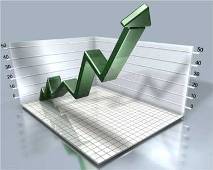 With most economists fearing double digit inflation after prices of petroleum products have been increased, a question being asked is why such a steep hike.
With most economists fearing double digit inflation after prices of petroleum products have been increased, a question being asked is why such a steep hike.
Diesel price has increased by 8 per cent, LPG 14 per cent and kerosene 20 per cent.
If June 2010 diesel price is taken as the base, then the increase is a mere 2 per cent. By contrast, petrol prices have gone up by 23 per cent in the same period.
This poses another question whether the increase is bigger or the protest.
Certainly the three controlled products have a higher combined weight of 6.32107 in the wholesale price index and hence invite louder protests forcing the Central and state governments to reduce tax.
Those who support free market pricing for petroleum products, however, say it is all about making people used to a hike.
"It is not a good idea to increase the price after long intervals by going to the empowered group of ministers. It gives opposition the opportunity to scream and has a greater impact on inflation," said Kirit Parikh who chaired a committee on petroleum pricing that recommended decontrol of both petrol and diesel prices.
| FUELLING WORRIES | ||
| % increase* | Price in Delhi(Rs) | |
| Petrol | 23 | 63.37 |
| Diesel | 8 | 41.12 |
| LPG | 14 | 395.35 |
| Kerosene | 20 | 14.83 |
| * If June 2010 diesel rate of Rs 41.12 is taken as the base then the increase is a mere 2 per cent. A duty cut by the Delhi govt brought down the diesel price to Rs 37.75 a litre in Sept 2010. | ||
| * Inflation rate has risen from 8.23% in January to 9.06% in May 2011 | ||
| * Govt taking revenue hit of Rs 37,750 crore in 2011-12, assuming Rs 49,000 crore is the annual loss | ||
| * The Rs 2.6 a litre excise duty reduction on diesel and removal of customs duty on crude oil will bring down growth in tax collection to 5.3% from a targeted 16% | ||
| * Tax revenue grew by around 29% in 2010-11. After duty revisions, the total tax revenue may grow just about 13% this year. | ||
The monthly inflation as measured by WPI was 8.23 per cent in January. In May, it was 9.06 per cent and once the impact of fuel price increase sets in completely, it is expected to reach double digits. In reaction to the inflation rate, the Reserve Bank of India too has raised key rates four times since January, pushing up the borrowing cost.
Oil marketing companies had been seeking a price increase since the beginning of the calendar year for not only the controlled products but also petrol which was decontrolled on paper in June 2010.
The government postponed the decision due to assembly elections in five states.
On May 14, a day after UPA and its ally Trinamool Congress swept the assembly elections, the Union government allowed the companies a steep rise of Rs 5 a litre in petrol prices, the steepest-ever increase since December 2008.
Lack of a clear policy direction is the reason for such adhocism and tying of pricing decisions to political whims.
"There have been three petroleum ministers in the UPA regime in the last six years.
Probably, the Prime Minister, who is an economist himself, has not given a thinking to petroleum prices," said former petroleum minister Ram Naik.
The Bharatiya Janata Party-led government deregulated petrol and diesel price through dismantling of administered price mechanism in April 2002 but even after a decade, a government policy direction is missing.
As Naik admits that if a hike is done before the elections, a man hit by the price rise will certainly think twice before going to cast vote.
Parikh suggests a way out. If the government decides that it will change duties beyond a price level and also fixes subsidy per litre at that point, then oil companies should be free to change the retail price beyond that level.
"This could be the first stage of decontrol in diesel price after which consumers will get used to the frequent changes. The government can then go for complete decontrol," he said.
The politician pain can be lessened with a small dose of hikes and cut in prices than giving a big dose of price increase. "Pain is much more when a patient is not used to the shot than if the government prepares him," said a former civil servant who was involved with policy making at the time of APM dismantling.









